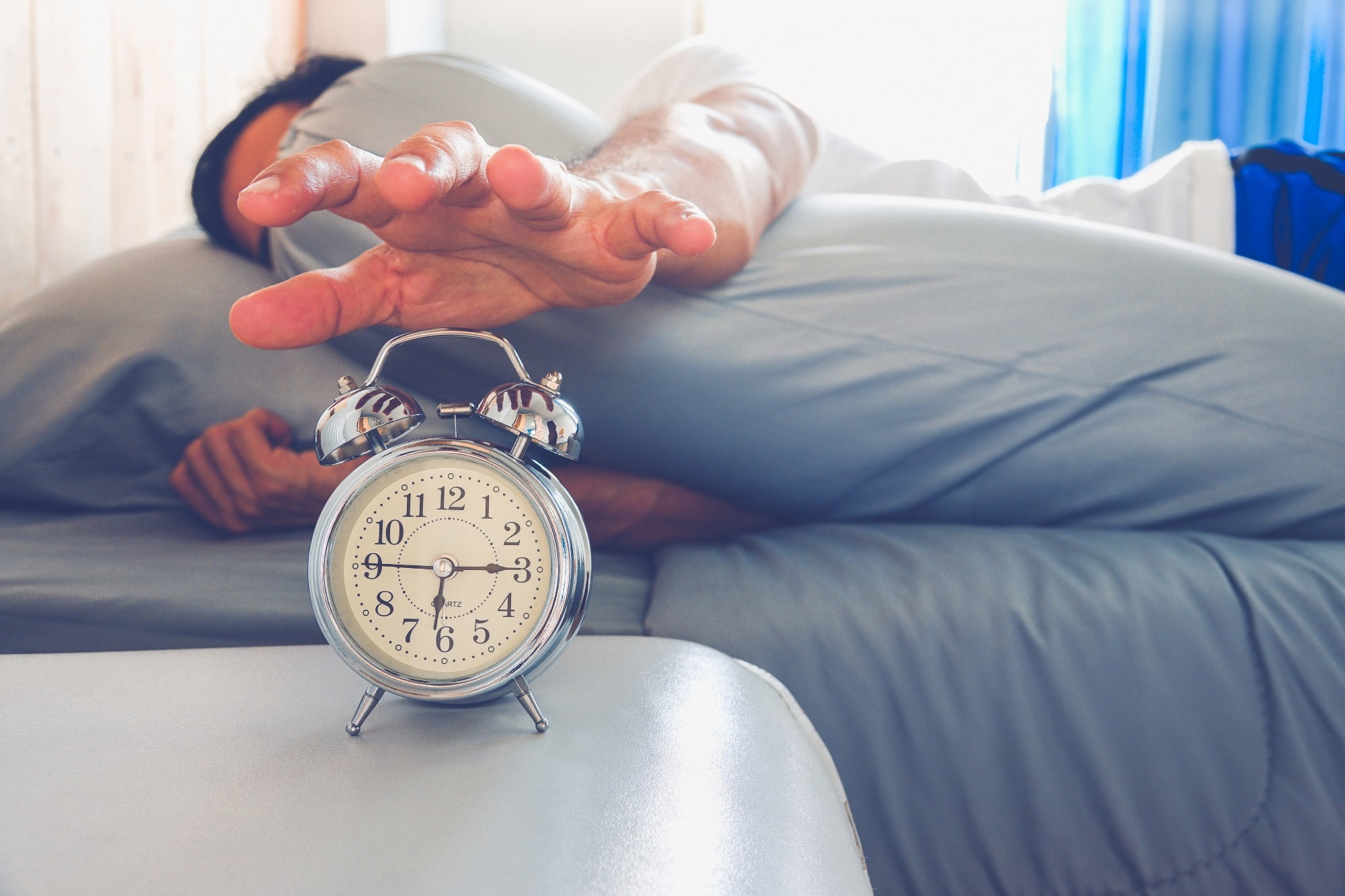Why are alarm sounds not good for our health?
Does the alarm sound have any effect on our bodies?
Different ways of waking up
References
Further reading
Do you need your alarm to wake up early in the morning? And after that, do you feel anxious or uneasy? If yes, then you're in the right place.
However, have you ever thought about why you are feeling like this? Is it because you are waking up early, or is it because of the alarm that works to wake you up? Let's find out why you may feel this way and how to avoid this feeling.
 Image Credit: Ko Backpacko/Shutterstock.com
Image Credit: Ko Backpacko/Shutterstock.com
Why are alarm sounds not good for our health?
None of us like the sound of our alarm; it breaks our pleasant sleep, but there may be a different reason behind getting annoyed by our alarm. Research has been conducted on how some sounds may be more torturous than others.
Research by the National Institute of Industrial Health in Japan has concluded that waking up to an alarm sound affects our bodies. Sudden sounds cause higher blood pressure and heart rate, thus causing stress by getting your adrenaline rushing.
Studies have claimed that our alarm sound could trigger our stress levels. This is because when we are in a deep sleep, the sound of the alarm wakes us up by giving us a shock, which can remain for the rest of the day. Scientists have explored the biological reasons why and how our alarms may cause this stress level.
For example, Dr. Chris Idzikowski of Edinburgh Sleep Centre states that sudden body changes during sleep make us vulnerable in the early morning. We all sleep in cycles; we go through 5 different stages of sleep
- Wake
- Light sleep
- Deep sleep
- REM
- Repeat
During deep sleep, the body restores itself, making it difficult to wake up; if you wake up during your deep sleep, your ability to think is affected badly, leading to morning grogginess.
A study was published in the American Medical Association Journal that waking up in a deep sleep can affect your cognitive abilities, short-term memory, and counting skills. All these can vanish after two hours after you wake up. However, this can have long-term effects: chronic mental and physical illness.
Our sleep and wake cycle is influenced by our internal circadian clock, which is the foundation of our sleep system. It controls a variety of functions in our body. This circadian clock is influenced by our sleep cycle.
Does the alarm sound have any effect on our bodies?
Different sounds do have differing effects on our mood and body. For example, a loud, sudden sound is more likely to induce stress, whereas if we wake up to gentle, soft, and calm sounds, we will save our bodies from stress.
Studies have concluded that loud sound triggers our body's fight-or-flight response.
Thus, it is advised that you try to keep your alarm sound as mild and low as possible, which will not affect your stress.
The Fight Flight Freeze Response
Different ways of waking up
It is difficult to eliminate the habit of using the alarm, but we need to look for different ways of waking up if we don't want long-term damage.
Teaching our bodies to wake up independently is hard but not impossible. Here are some tips:
- You need to set a timetable of when to sleep and wake up. At first, it won't be easy, but your body will eventually adapt to it as you make this a habit.
- Try to go to bed early to wake up naturally in the morning.
- Use soft sounds or vibrations to help yourself wake up.
- Later, reduce the use of alarms and try to wake up naturally; you can use the natural sunlight to wake up or any natural sound.
- Avoid sleeping during the day; if you sleep too much, it might affect your night sleep.
- Make sure if you are taking a nap in the daytime, try to keep it short and before 4 pm. If you sleep after 4 pm, you will have difficulty falling asleep at night.
- Do regular exercise; tiring your body makes it easy to fall asleep early.
- Avoid alcohol, caffeine, and large meals before bedtime.
References
Further Reading
Last Updated: Aug 30, 2023